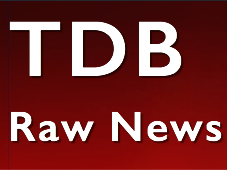Headline: Groser must tell NZ public downside of TPPA talks
“As the TPPA negotiation moves towards a possible conclusion, the New Zealand public deserve to know what the Key Government is willing to give up to achieve this deal,” Dr Norman said.
Trade Minister Tim Groser needs to give the New Zealand public far more information about the end game for the Trans-Pacific Partnership Agreement (TPPA) than he has so far, Green Party Co-leader Dr Russel Norman said today.
The next round of TPPA talks are scheduled for January, when most of the twelve countries involved in the negotiations will be on Christmas holidays and their parliaments will be in recess.
“As the TPPA negotiation moves towards a possible conclusion, the New Zealand public deserve to know what the Key Government is willing to give up to achieve this deal,” Dr Norman said.
“Before the next round of TPPA talks starts in January, Tim Groser should; at the very least, tell the New Zealand public what our bottom lines are and what he is willing to sacrifice to get this deal done.
“Minister Groser has made various statements that no New Zealander will pay more for their prescriptions because of this deal,” Dr Norman said.
“If New Zealanders have nothing to fear from the TPP negotiations why won’t the Minister tell us what he agreed to, particularly in relation to Pharmac?
“The TPPA will have far more impact on New Zealand’s ability to make laws protecting our environment and health than any other such agreement,” said Dr Norman.
“It is not good enough that Minister Groser and his officials are intent on getting this deal inked and approved by the Key cabinet before the public knows what we may be losing.”
—






There are a lot of the current TPP documents on Wikileaks, people.
https://wikileaks.org/tpp/
Under the Trans Pacific Partnership Agreement the US seeks to make independent sovereign governments (like the New Zealand government), subject to courts made up of appointees by the same companies likely to bring such cases against them.
Despite government assurances that they will protect Pharmac’s ability to keep medicines and drugs affordable. Under a lot of diplomatic doubletalk Tim Groser reveals the fact that the government are preparing to renege on this promise. Tim Groser passes off this backdown, by saying that what the NZ government lose in being able to source affordable medicines, will be gained back by greater tax returns to the government from expected increase in business activity and trade that will flow from the TPPA opening up free trade. This premise is weak at best and doesn’t say anything about the affordability of medicines in an economic down turn or recession. During such downturns do the sick and dying do without?
So there you have it. Despite the preceding double-talk Tim Groser admits that he is prepared to allow a clause in the TPPA that will allow US drug companies to ban Pharmac from buying cheap generic medicines at the risk of being sued by the big drug companies under proposed TPPA investor/government jurisdiction.
In other news:
While the US is trying to subject independent governments to be bound by rulings by an international convention made up of big business lawyers that will restrict the buying of medicines…. The US itself is refusing to be bound by rulings by an international convention of human rights lawyers that could impose penalties against, would you believe it, “genocide”.
But no, it appears to be true:
Comments are closed.